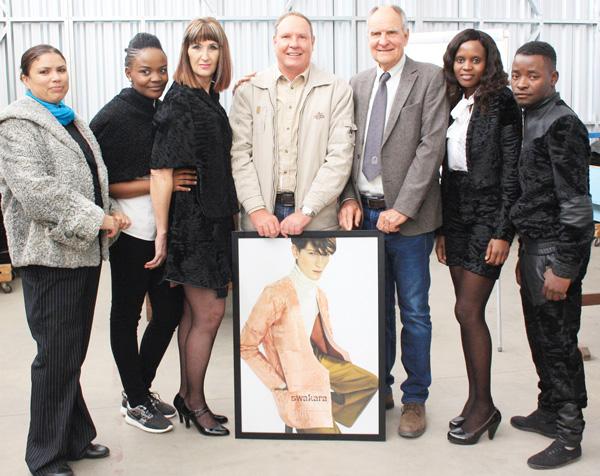
Karakul proves its market value

Currently producing about 360 tonnes of Karakul wool annually, a by-product of Swakara sheep used to make carpets and other products, the Swakara pelt industry is eager to grow, according to Bernd Rothkegel, co-opted Swakara board member.
Recently, the Swakara Board hosted an information day at the House of Swakara’ in Windhoek, where, Hon. Maureen Hinda, Deputy Minister of International Relations and Cooperation was present as Agra, the agricultural implements and inputs retailer and sole marketing agent of the sought after Swakara pelts explained its role on the Open Day.
Rothkegel gave a summary at the event on the ‘Swakara Wool Initiative’ which is carried out in partnership with government through the Ministry of Industrialization, Trade and SME Development.
“Only 50 tonnes are currently used locally. Thus, we can confidently say that there is an untapped market for Namibian wool and plenty of scope for local value addition,” he added.
Swakara Board, Raimar von Hase said Swakara farming has made significant contributions to the wellbeing of Namibians, especially in the arid southern parts of the country.
His sentiments were echoed by Paulus Apollus, Swakara Producer and Board Member, who said that Swakara has created many employment opportunities and contributes meaningfully to the rural economy.
Apollus urged new and upcoming farmers to join the industry and produce more pelts to sell on the international markets. There were plenty opportunities for more pelts to be marketed.
Meanwhile, Jaco van Zyl from Agra explained the Swakara value chain under the theme; “From Desert till the hammer falls.” He said that farmers deliver their pelts throughout the year to ‘The House of Swakara’ where pelts are sorted, graded and shipped to the auction house in Copenhagen, Denmark.
The Swakara pelts are auctioned bi-annually at the April and September Kopenhagen Fur auction house in Denmark where bidders from all over the world compete for the pelts. The farmer retains ownership of the pelts until the hammer drops, and is paid out by Agra within seven days after the auction.
At the same event, the Swakara Board presented framed Swakara garment posters to stakeholders who play a significant role in and support to the Swakara industry. The recipients were: The Ministry of International Relations and Cooperation; Ministry of Agriculture, Water and Forestry; Ministry of Industrialisation, Trade and SME Development and Agra. The information day was concluded with a presentation made by the expert pelt sorters, on how the pelts are sorted and prepared for the international markets. The next Swakara pelt auction will take place on 10 September 2016 in Denmark.











































